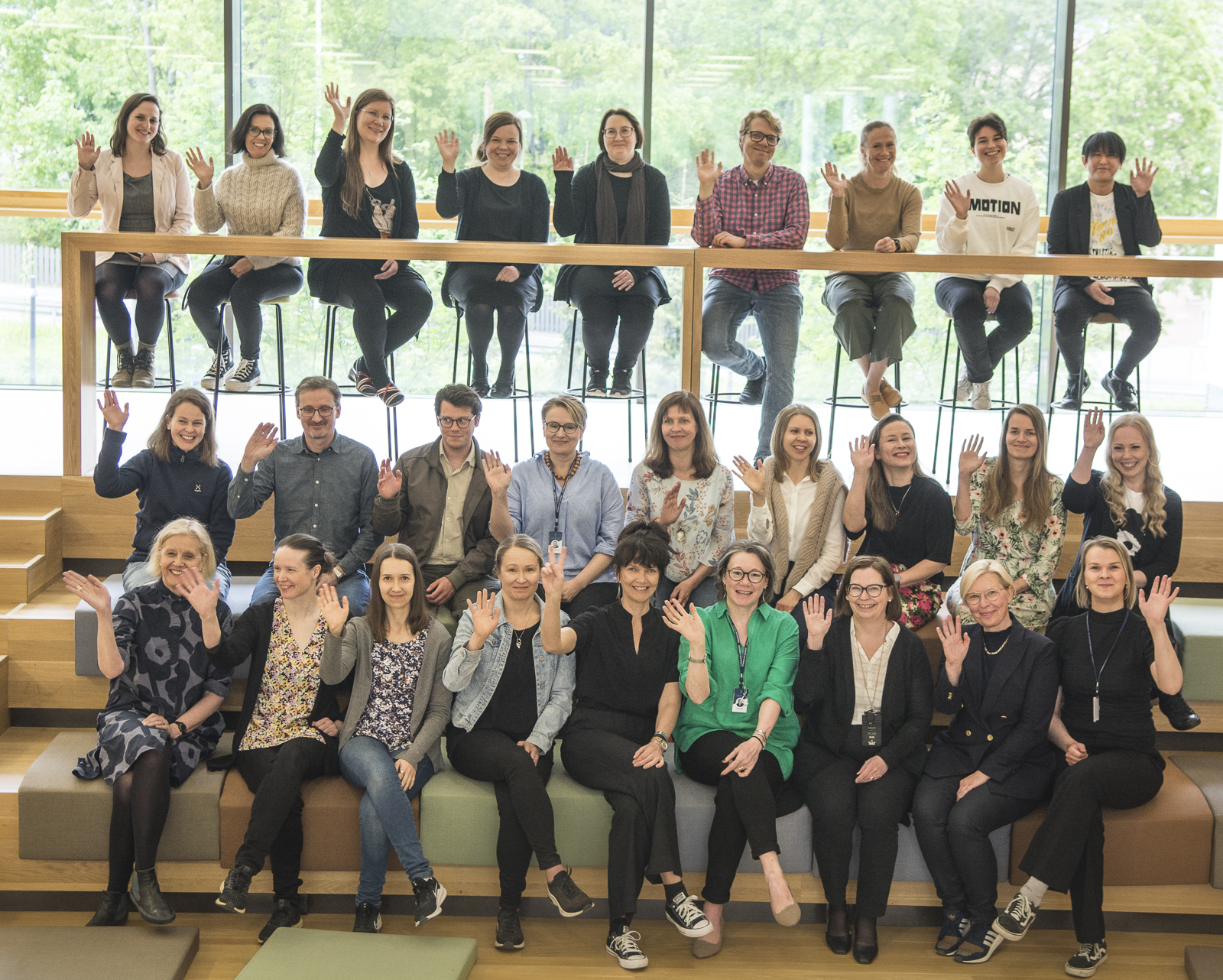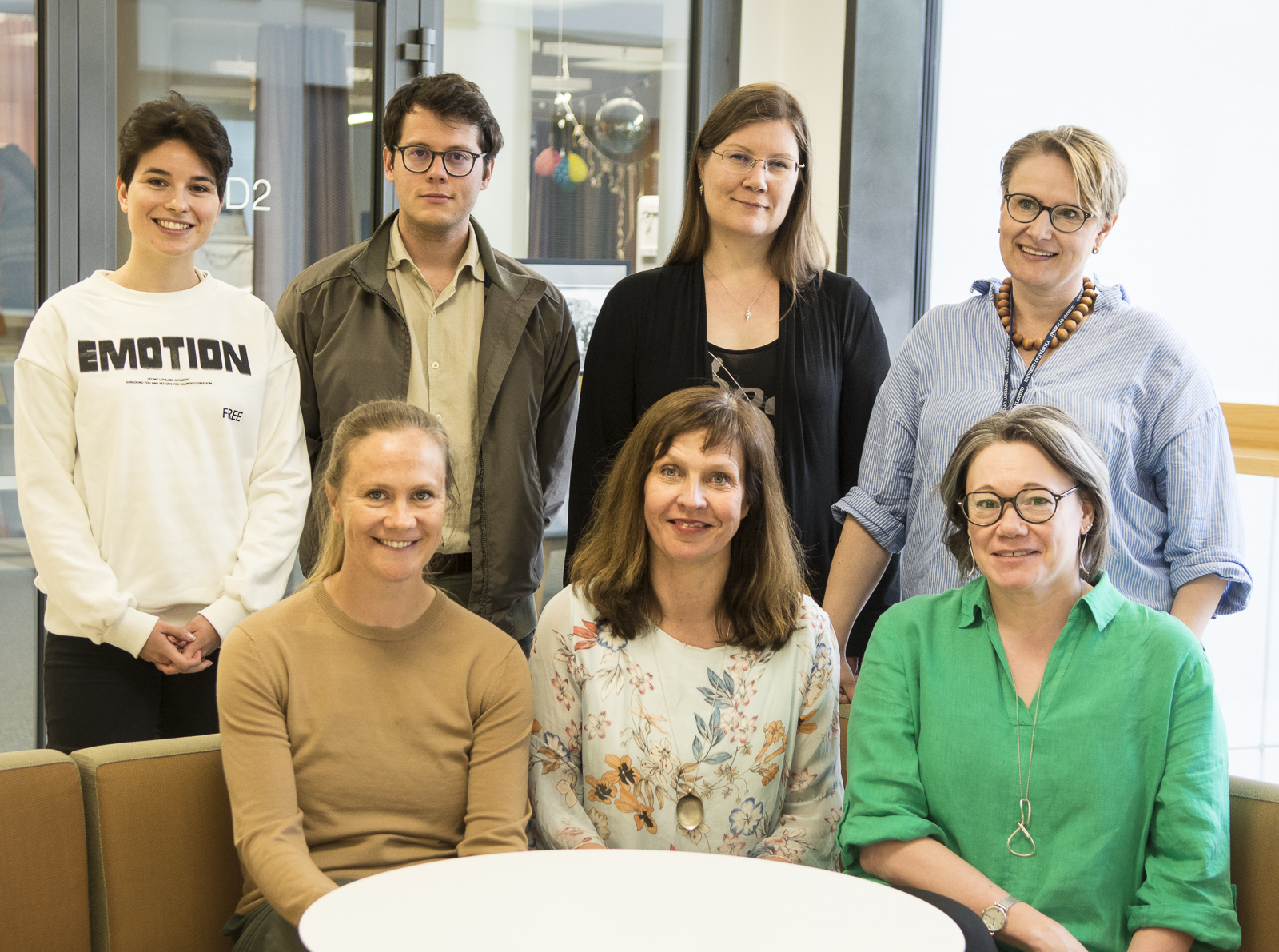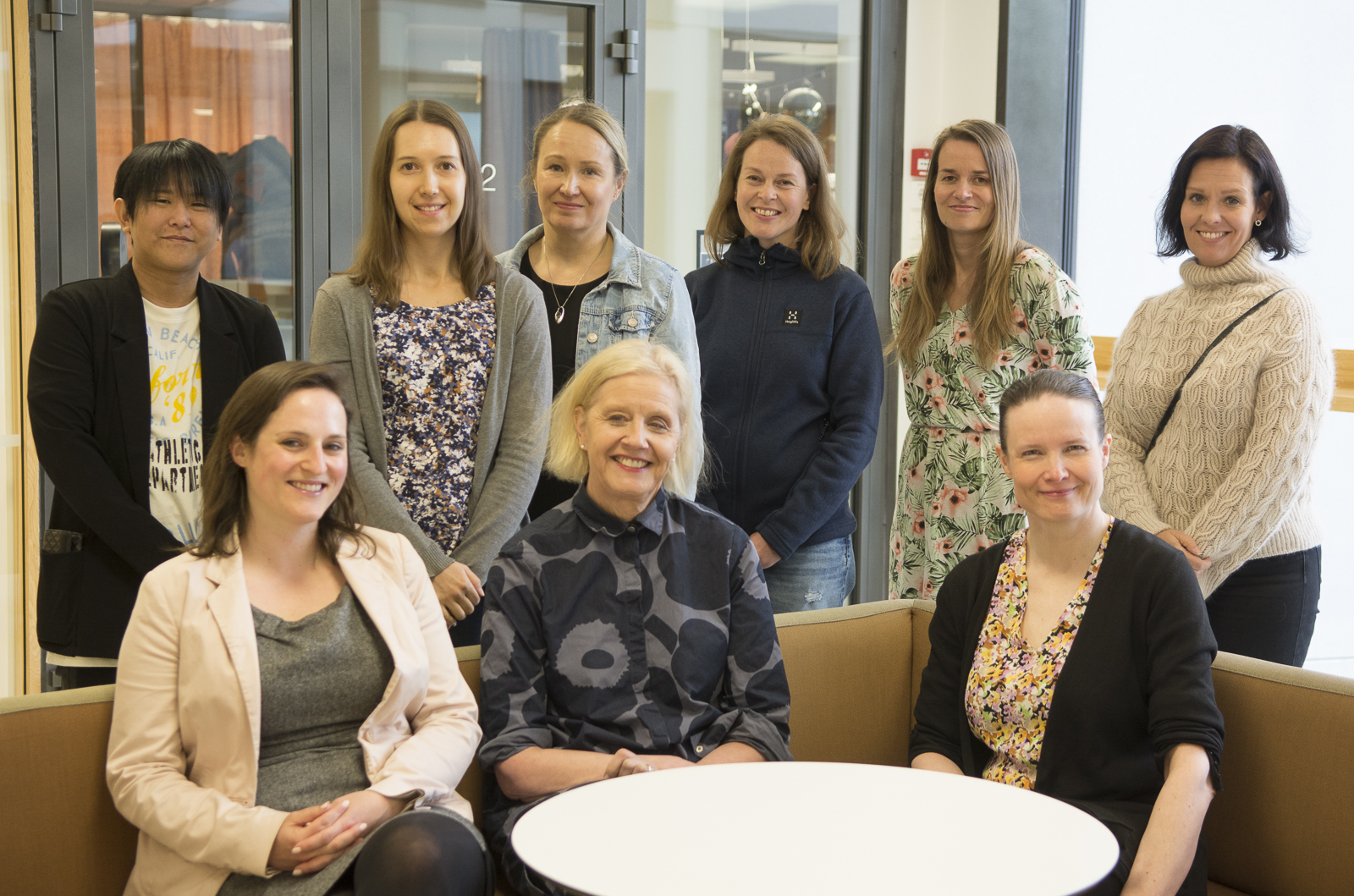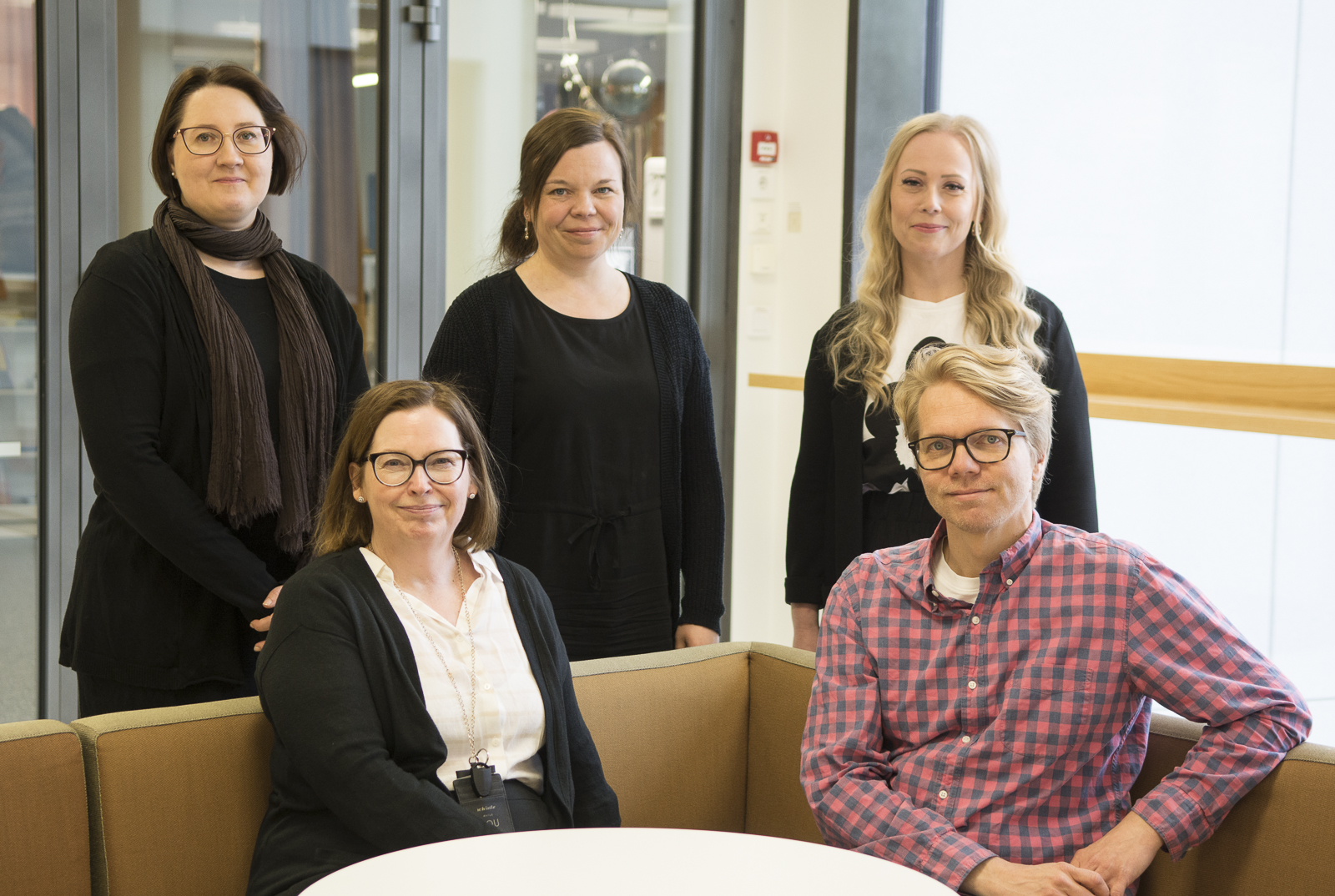About the consortium
Right to Belong: Tackling loneliness and ostracism during childhood and adolescence
The objective of the Right to Belong (R-to-B) consortium is to create research-based solutions to support decision-making on how to decrease and prevent children’s and youth’s experiences of loneliness and ostracism, i.e. social exclusion, in different environments, such as families, schools, social media and friend groups.
R-to-B utilizes methods such as brain imaging, eye movement tracking and action research, as well as large-scale national and international longitudinal data sets, surveys and register data. The project also includes evaluations of the long-term effects of three large randomized field experiments.
Researchers at the R-to-B consortium are experts in education and development psychology, sociology, child psychiatry and medicine, neuroscience, economics, law and information technology, from the universities of Turku, Helsinki, Jyväskylä and Aalto. Itla children’s foundation and the Finnish National Agency for Education are also consortium’s partners.
The consortium cooperates extensively with children and young people, the state administration and various authorities and organizations, among others. The research is funded by the Strategic Research Council, which operates within the Academy of Finland. R-to-B is part of the YOUNG research program, which focuses on children and young people as members of society and as makers of the future and uses research to find solutions that ensure equal opportunities for all children and young people for a good life and safe growth and development.

The research is divided into three impact objectives:
- To build transdisciplinary understanding about the biopsychosocial antecedents, developmental trajectories, consequences and costs of loneliness and ostracism at individual and community level.
- To test, evaluate and develop evidence-based intervention and prevention methods of decreasing loneliness and ostracism and to strengthen inclusion and community.
- To co-create universal and targeted means and policy solutions to strengthen the participation of children and young people and to decrease exclusion as part of the service system.
Subprojects
Individual-level biopsychosocial mechanisms of loneliness and ostracism
This work package creates novel understanding about the psychological, psychiatric and physiological characteristics underlying and following the exposure to the experiences of loneliness and/or ostracism.
The interrelations between loneliness and ostracism, stress regulation systems and inflammation, social behaviour, emotion regulation, speech and language development, as well as psychiatric symptoms are studied by combining biomarkers, brain imaging and observation data. The gained knowledge can be applied to the development of school and service systems as well as interventions.
Further information: Linnea Karlsson, director of the subproject, linnea.karlsson@utu.fi

Developmental trajectories and consequences of loneliness and ostracism: individual and contextual intervening mechanisms
The aim of this work package is to gain understanding about the different developmental trajectories of loneliness and outsiderhood in childhood and youth and their consequences, as well as to identify both individual and environment-related protective mechanisms.
We are also interested in the effects of various crises (COVID-19-pandemic, climate change and Russian invasion of Ukraine) on loneliness and how the current world events are reflected in the well-being and resilience of vulnerable children and young people. Of the resilience factors, we will examine in particular the feeling of belonging, social support from the environment, socio-emotional skills, agency, hope, optimism, self-regulation, and ability beliefs. Of the environments, we examine the importance of family, friends, peer network, social media, teachers and social and health services on loneliness and ostracism.
Further information: Noona Kiuru, director of the subproject, noona.h.kiuru@jyu.fi

Preventing and decreasing loneliness and ostracism in schools
Schools play an important role in the development of socio-emotional skills, practising grouping, and preventing loneliness. However, intervention programs that provide targeted means for schools to decrease outsiderhood, focusing on long-term results are few. This work package implements three programs aimed at identifying, preventing and decreasing outsiderhood and loneliness in the school environment:
- the ongoing two-year pre-school experiment, funded by the Ministry of Education and Culture, will be extended to identify the long-term effects of two-year pre-school on the development of socio-emotional skills and loneliness of children, as well as the importance of classroom interaction for children’s feelings of belonging in primary school;
- the ongoing three-year KYTKE program (in cooperation with Harvard University) will be extended to follow participants in lower secondary school and will examine the program’s impact on discrimination, friendships and social cohesion; and
- the School to Belong program in secondary schools will be developed and expanded so that it supports pupils’ active agency and the safety of learning environments also in basic education.
Further information: Matti Sarvimäki, director of the subproject, matti.sarvimaki@aalto.fi

Services to Belong: Children as co-creators of integrated service systems combating loneliness and ostracism
This work package examines and develops universal and targeted public and publicly funded services – such as the activities of schools, child welfare institutions and youth services – for children and young people experiencing loneliness. The work packages are based on the theory and conceptualization of value creation related to the use of services, as well as on better understanding about the service needs and supply and legal obligations of service production and the UN Convention on the Rights of the Child.
In service research it is essential to try to find out how service providers – such as schools and ECEC centres – identify problems and development challenges related to the everyday lives of children and young people. In addition, children and young people play a central role in developing services. Children and young people’s opinions are heard when considering how, for example, ECEC centres, schools and child welfare services are improved in order to meet the needs of children and young people better. The participation is based on a new idea of accountability of public activities, which highlights the importance of children’s and young people’s opinions. For example ECEC centres and schools are thus seen as accountable from the children’s point of view when they provide children with valuable service experiences and security related to the use of services.
The research also focuses on looking at child-oriented service models across Finland and ensuring that the reforming of services takes place in a coordinated manner at national level. Consistency between the quality and content of services decreases inequalities.
Further information: Tiina Ristikari, director of the subproject, tiina.ristikari@itla.fi
Interested in our research? Contact us!

Professor, universities of Turku and Jyväskyläniina.junttila@utu.fi

